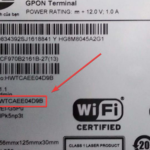There is no technological device that can guarantee 100% protection against hackers. Therefore, knowing how to check if your phone has been hacked will help users find a solution if they detect a threat. Through this article, let’s learn about the signs of a hacked phone and how to handle it if you unfortunately fall victim to this situation.
Causes of phone hacking:
Before learning how to check if your phone has been hacked, you need to find out why your mobile device has become a “target” for cyber attacks. Specifically, as follows:
Active agents:
- Downloading apps from untrustworthy sources: Downloading and installing apps from untrustworthy sources or rampant on the internet can be a major risk. These apps may contain malware or malicious software, so when they are installed, the malware can penetrate the system and steal personal information.
- Clicking on pop-up ads: Opening pop-up ads from unknown sources or clicking to receive rewards or make purchases can be a way to trick users and steal personal information. These pop-ups may contain malicious links or malware that is installed automatically when clicked.
- Accessing illegal websites: Accessing unauthorized websites or websites with suspicious content can expose users’ devices to cybersecurity threats. These websites may contain malware that aims to trick users into providing personal information.
- Connecting to unknown devices or public Wi-Fi: Pairing your phone with unknown USB devices or connecting to public Wi-Fi can create an unsafe environment. Unknown devices may contain malware, while public Wi-Fi can allow your phone to be captured and monitored by attackers.
/fptshop.com.vn/uploads/images/tin-tuc/178912/Originals/hack%201.jpg)
Passive agents:
- Clicking on malicious links: Users may unintentionally click on links containing viruses or malware via email, text messages, or malicious websites. Clicking on these links can cause malware to be installed on their device, facilitating cyber attacks.
- Using an unregistered SIM card: Another passive factor that causes phone hacking is using an unregistered SIM card. Attackers can exploit and steal users’ personal information by accessing services related to the phone number or sending malicious messages.
/fptshop.com.vn/uploads/images/tin-tuc/178912/Originals/hack%202.jpg)
How to check if your phone has been hacked?
Checking if your phone has been hacked is not difficult. You can assess based on symptoms such as:
High battery temperature
When your phone is hacked by hackers and installs hidden apps, this can lead to an increase in battery temperature. Although you may not be using any heavy apps or charging the device, these hidden apps will consume resources and cause the phone to overheat. When the battery temperature suddenly rises, you should immediately consider the possibility of malware or unknown browsers running on your phone.
/fptshop.com.vn/uploads/images/tin-tuc/178912/Originals/hack%203.jpg)
Phone battery drains faster than normal
When your phone’s battery drains faster than usual, it can also suggest that your phone has been hacked. At this point, you should go to your phone’s settings and check the “battery” or “performance” section to see which app is consuming the most power. If any app is causing unnecessary power consumption, you can turn it off or remove it from your device.
If, after taking the above measures, the phone’s battery still drains quickly, it may be due to a hardware problem with the device. In this case, you should take your phone to authorized service centers for advice and timely repairs.
/fptshop.com.vn/uploads/images/tin-tuc/178912/Originals/hack%204.jpg)
Hearing noises coming from your smartphone
Sometimes you may hear strange noises coming from your phone, such as echoes, static, or beeps. This can be a warning sign that your phone has been hacked. Because when an unauthorized intrusion into the phone or the installation of eavesdropping devices is carried out, the hackers have unintentionally interfered with the signal, leading to the appearance of the above sounds.
Pop-up windows or changes on the phone screen
Another effective way to check if your phone has been hacked is to pay attention to unusual signs from the apps on your device, such as:
- Strange windows and apps appear: If you see unfamiliar windows or apps appearing on your phone, this may be a sign that malware has infiltrated the device.
- App position change: If you notice that the position of the apps on the Home screen has suddenly changed without you doing it, this could indicate unwanted interference with the phone.
- Calendar has strange appointments or reminders: If you find appointments or reminders in your phone’s Calendar that you don’t remember creating, it could be a sign that someone has accessed and changed your personal information.
/fptshop.com.vn/uploads/images/tin-tuc/178912/Originals/hack%205.jpg)
Presence of unidentified applications
If unidentified apps appear, running in the background, this could be a sign that your phone has been hacked. Usually, these apps do not appear as icons on the Home screen like regular apps; instead, there are links attached to the app, making it difficult for users to recognize.
To check if your phone is running any strange apps, you can follow these steps:
- For iPhones: You can swipe through the Home screens or check the app library to find unauthorized apps.
- For Android phones: Open “App Management and Notifications” in “Settings” to see a list of apps downloaded to the phone. Check if there are any unidentified or unfamiliar apps.
/fptshop.com.vn/uploads/images/tin-tuc/178912/Originals/hack%206.jpg)
Detection of strange messages and calls in the phone log
If you find unknown messages or calls in your phone’s log, you should immediately consider that your phone has been hacked. Your phone may automatically make calls, receive calls that you did not make directly, or receive messages from unfamiliar numbers because hackers have illegally accessed your mobile data.
/fptshop.com.vn/uploads/images/tin-tuc/178912/Originals/hack%207.jpg)
What to do if you find your phone has been hacked?
After learning how to check if your phone has been hacked, you should find ways to fix it as soon as possible to prevent cyber attacks from happening. Here are the actions users should take when they notice signs of phone hacking.
Start an anti-spyware scan immediately
If you suspect that your phone may be infected with a virus, malware, or malicious app, you should use mobile scanning software to find and remove these agents. One of the most popular and reliable anti-spyware apps is Certo, available on both iOS and Android platforms.
Certo allows you to scan your entire phone system and find suspicious software, apps, or links that may have been installed by hackers. When the scan is complete, it will automatically provide you with a list of strange categories on the device and accompanying options for you to handle.
/fptshop.com.vn/uploads/images/tin-tuc/178912/Originals/hack%208_1.jpg)
Take steps to remove the threat
Once you have received information from the Certo app and identified the threats on your device, proceed to remove them all immediately. At





































